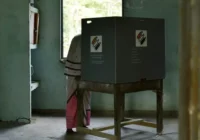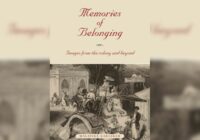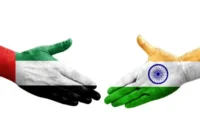Not everyone wins in trade, and winners have to compensate losers who might end up selling sex or worse to survive.
Adam Smith is the patron saint of the modern world economy. Venerated as the father of capitalism, he is little read and even less understood. In his view, man has a “propensity to truck, barter and exchange one thing for another.”
It seems Africans have taken Smith to heart, and this week 26 countries of what Europeans called the “Dark Continent” signed the Tripartite Free Trade Agreement (TFTA). The TFTA amalgamates the Southern African Development Community, the East African Community and the Common Market for Eastern and Southern Africa, three of Africa’s main trading blocs. Its ambitious goal is to create a $1.2 billion free-trade area.
The 54 countries of Africa do not trade much with each other. Barely 10% of the total commerce of the continent is intra-African trade. Intra-Asian trade is 25% and intra-European Union trade is over 75%. Mission civilisatrice of the Europeans brought Christianity and railways to Africa, but new borders, rapacious exploitation and colonial bureaucracies destroyed age-old trading relationships and routes.
The post-independence strongmen of Africa were far too often tyrants who robbed, plundered and pillaged their people while seeking the patronage of either the United States or the Soviet Union. Trade did not really flower and employment was scarce.
Today, there is a new energy in Africa. Corruption continues to be endemic, parts of the continent are plagued by inter-tribal violence or insurgency infected now by a new religious fervor, and most elites are still plagued by an inferiority complex that makes them wear ridiculously religious suits under the blazing African sun.
Yet what then-British Prime Minister Harold Macmillan called “the wind of change” in 1960 is blowing through the continent. For all its ills, Africa has entrepreneurial energy. Many young Africans have a hunger to learn. Writers like Chimamanda Adicihe are engaged in an endeavor to find Africa’s authentic cultural voice. Young Africans who leave for the United States or Europe now retain roots with native homelands, and many are returning back with new ideas, skills and ambitions. China is now playing a much bigger role in Africa, bringing new opportunities and challenges.
The Economist rightly points out that the TFTA does not set timelines and that the regional trading blocs have not managed to boost trade. Yet the fact that African leaders are starting to talk about boosting trade among each other is a good thing. The borders in Africa—as in the Middle East—are completely arbitrary and were brutally drawn up on the whim of European colonizers. If they cause less of a hindrance to “truck, barter and exchange,” then Africans would have more jobs and better lives.
Even as Africans opt for more trade, the US Congress has become suspicious of it. Despite a personal trip to Capitol Hill by US President Barack Obama, the House of Representatives voted against giving him fast track authority to conclude trade deals. Obama has been trying to push through the Trans-Pacific Partnership (TPP), the biggest trade deal in history. There are 12 nations involved in the deal: the US, Canada, Mexico, Chile, Peru, Australia, New Zealand, Japan, Malaysia, Vietnam, Singapore and Brunei. Promoting exports has been a top priority for Obama. The Republican leadership, the Chamber of Commerce and the National Association of Manufacturers support the president. It is his own party, including long-term allies like the still-powerful Nancy Pelosi, who have given Obama a bloody nose.
So, what is going on? The White House website claims that not only will the TPP create jobs for American workers, but it will also end human trafficking and forced labor. The TPP is also supposed to promote the rights of the lesbian, gay, bisexual and transgender community as well as, in the words of Obama, “make sure that the global economy’s rules aren’t written by countries like China; they’re written by the United States of America.” From the sounds of it, only ignoramuses would oppose this win-win deal that will bring peace, prosperity and power to the US.
If something sounds too good to be true, then it is usually untrue. The reality is that the TPP is not what it is made out to be. The devil invariably lies in the details, and critics of the TPP are right in making the case that it is secretive, intrusive and scary. Senator Elizabeth Warren is calling for the TPP to be public so that people can have the same access to it that corporations have had so far.
The conflict over the TPP demonstrates that the United States is now a deeply divided society, with different groups developing increasingly divergent interests. For a company that is listed on the Dow Jones, a trade deal is a win-win. It can sell more abroad and earn more profits. This gives investors more returns and the management more compensation. Such a deal might give the company the opportunity to set up factories more easily in Vietnam or Malaysia. This would lower labor costs and provide more feather for investors and management to line their nests. Yet it might lead to people losing jobs and getting so demoralized that they stop searching for work altogether. When they do so, they fall out of the labor market and do not show up in the unemployment figures that look a lot healthier for the US than they really are.
Trade produces both winners and losers. Democrats are responding to the pressure of constituents who have seen jobs leave the country. Despite all the wealth in the US, one survey found that 62% of Americans had no emergency savings and could not afford a $500 car repair. Naturally, a number of them distrust trade deals that might take jobs overseas. Obama and his bedfellows supporting the deal have yet to spell out how they will compensate losers. The trade deal might be a great thing for America, but it is certainly not great for all Americans. Obama, Republicans and big business have yet to honestly state which Americans will lose out from the TPP and how will they compensate them.
Trade at an individual level occurs when people have things they can exchange. If someone has bread and another person has wine, then both can barter bread with wine. This is the classic win-win that ends up with both individuals having bread and wine. When people have nothing, then they can exchange their time for food or wages. However, if there are too many poor people, then their labor is not worth much and may not be needed at all. In New York, the affluent need nannies, hairstylists, chefs, personal trainers and even dog trainers. In Haiti, there are too many poor people with too little to do.
The United Nations Office of Internal Oversight Services has found that hundreds of women in Haiti have been selling sex to its peacekeepers. Hunger and poverty make people desperate. Prostitution has been called the world’s oldest profession and it tends to increase when women are in desperate situations. Love on the Dole captured how the Great Depression in the early 1930s caused women like Sally Hardcastle to sell their bodies for sex. Peacekeepers posted in areas wracked with conflict have been buying sex for a while using cash, jewelry, cellphones et al.
Some say this is a result of human nature and is bound to happen. Others argue that peacekeepers are meant to adhere to a higher standard. The moral unease with this purchase of sex is compounded because it is done by supposedly benevolent men with both guns and money in poor and hungry places. The gradual bureaucratization of the United Nations has dimmed both the idealism and the professionalism of those who serve under its flag. So, they are exploiting the vulnerable in the same way as pedophile priests. The fact that a third of the purported victims are children demonstrates that big institutions are inherently flawed beasts. The United Nations deserves as much scrutiny as the Catholic Church to ensure those invested with power do not abuse it.
In the lawless Indian state of Uttar Pradesh (UP), a journalist who dared to investigate a minister for corruption has been burned alive. Apparently, the police accompanied the henchmen of the minister and killed the journalist. The politicians who rule UP have long had a reputation for ruthlessness, but the dying man’s accusation has horrified even this criminal region where rape, robbery and murder are a daily occurrence and the police are regarded as the biggest of all criminal gangs.
Turkish President Recep Tayyip Erdogan suffered a setback as his party failed to win a complete majority. Turkey is back to the days of coalition politics. Voters disliked the increasing authoritarianism of Erdogan, who is seen by many as a new-age sultan. In a historic development, Selahattin Demirtas, the witty Kurdish leader, managed to lead his party into parliament. By appealing to both Kurds and Turks, he garnered more than 10% of the votes cast, the threshold needed by a party to gain seats in parliament. Risks remain, but the election results are a positive development for Turkish democracy.
*[You can receive “The World This Week” directly in your inbox by subscribing to our mailing list. Simply visit Fair Observer and enter your email address in the space provided. Meanwhile, please find below five of our finest articles for the week.]
[seperator style=”style1″]In Russia, Cancer Patients Are Driven to Suicide[/seperator]
Lack of readily-available palliative care in Russia is driving cancer patients to suicide.
In February 2014, the suicide of a distinguished navy commander rattled Russia’s social sphere. Former Rear Admiral Vyacheslav Apanasenko died in hospital after attempting to shoot himself, following a prolonged battle with cancer. “Do not blame anyone, but the Health Ministry and the government. I was prepared to suffer, but watching my loved ones struggle has proven too much,” his suicide note said.
His death wasn’t an exception: Just that March, at least another eight cancer patients took their lives.
Moscow’s Deputy Mayor for Social Issues Leonid Pechatnikov, however, did not seem too shaken. He blamed not the health services, but seasonal affective disorder (a standing joke excuse for all sorts of questionable behavior in Russia) for the increase in suicides, saying: “People don’t want to torture themselves, or their relatives. This is their version of euthanasia.” In a better world, this situation would lead to a swift… Read more
[seperator style=”style1″]Equality is the Key to Peace in the Middle East[/seperator]
What is the root cause of conflict in the modern Middle East?
The ideals of diversity and difference—the notion of a mosaic society—are amiable, but in reality these terms mean nothing without equality, without which there is no peace. As soon as one tribe regards itself as more prized than the other, it is the beginning of every conflict. This experience is as old as history, and little is going to change it because it is hardwired into human existence. In order to regard instinctual behavior as group survival, human beings need not be externally challenged by another group.
Nature, the environment and the need to survive has created a predisposition on the part of human beings to survive in competition with the other. In the very seeds of existence lies the basis of human destruction. Thus, conflict has been a function of human history since the very beginning of human existence. Conflict resolution, therefore, ought to be about the need… Read more
[seperator style=”style1″]Economic Development is Crucial for Kosovo[/seperator]
In this edition of The Interview, Fair Observer talks to EU Special Representative in Kosovo Samuel Zbogar.
On February 17, 2008, Kosovo declared independence. The International Court of Justice subsequently stated that the declaration did not violate international law.
Since then, the newborn nation, yearning for a prosperous economy and constructive international ties, has undergone ups and downs and received diplomatic recognition from 110 countries. Eight nations, including the United States, Britain and France, recognized Kosovo one day after its declaration of independence.
However, aside from the question of recognition, Kosovo faces other issues as well. It wants to join the European Union (EU), forge stronger ties with NATO, improve its economic indicators, make progress on its human rights record and sustain European values.
The European Union has assigned a special mission to Kosovo, and Samuel Zbogar, the former Slovenian foreign minister, is the head of the EU office in Pristina. He was appointed by the former high representative of the European Union… Read more
[seperator style=”style1″]Cameron’s Renegotiation Will Not Be Easy[/seperator]
David Cameron should reframe the EU negotiation, both in Britain and in the rest of the European Union, says former Irish Prime Minister John Bruton.
The British government’s plan to renegotiate the terms of its membership to the European Union (EU) has not come at a good time. The EU is tackling the possibility of Greece leaving the euro, as well as Ukraine going bankrupt while simultaneously being dismantled by Russia.
Now, while doing all that, the EU must also address itself to a—yet to be revealed—British renegotiation agenda. It is likely that this agenda, to some extent, will be shaped around British Prime Minister David Cameron’s assessment of what he considers to stand a good chance of being conceded. He is touring EU capitals to find that out. This is a sensible and pragmatic approach on his part.
What he gets will probably not satisfy the 100 or so Tory members of parliament (MP) who simply want the United Kingdom to leave… Read more
[seperator style=”style1″]Stop Child Labor in Nepal[/seperator]
Nepalese policymakers must examine economic factors when drafting solutions to combat child labor.
Imagine somewhere in Kathmandu that a child is dancing to the songs of his blind father for money. Such a heartwarming sight, no doubt. Given how cheap emotional pity is, you might consider dropping a few bucks to help sustain this narrative—that of familial bonds.
But is there more than meets the eye? Perhaps some context could help.
The child in question is one of many helping out on family farms, selling petty items, scavenging for recyclables, begging, weaving carpets, working as conductors in rickshaws, laboring in brick kilns and stone quarries. Dancing, which in most circumstances would evoke a positive emotion, is instead a throwback to an old and often overlooked question in Nepal: How do we provide for children who happen to be born in unfortunate circumstances?
This boy, who is no older than 8 or 9 years old, should be in a school playing with friends… Read more
The views expressed in this article are the author’s own and do not necessarily reflect Fair Observer’s editorial policy.
Photo Credit: Victor Grow / Drop of Light / Shutterstock.com
 We bring you perspectives from around the world. Help us to inform and educate. Your donation is tax-deductible. Join over 400 people to become a donor or you could choose to be a sponsor.
We bring you perspectives from around the world. Help us to inform and educate. Your donation is tax-deductible. Join over 400 people to become a donor or you could choose to be a sponsor.
Support Fair Observer
We rely on your support for our independence, diversity and quality.
For more than 10 years, Fair Observer has been free, fair and independent. No billionaire owns us, no advertisers control us. We are a reader-supported nonprofit. Unlike many other publications, we keep our content free for readers regardless of where they live or whether they can afford to pay. We have no paywalls and no ads.
In the post-truth era of fake news, echo chambers and filter bubbles, we publish a plurality of perspectives from around the world. Anyone can publish with us, but everyone goes through a rigorous editorial process. So, you get fact-checked, well-reasoned content instead of noise.
We publish 2,500+ voices from 90+ countries. We also conduct education and training programs
on subjects ranging from digital media and journalism to writing and critical thinking. This
doesn’t come cheap. Servers, editors, trainers and web developers cost
money.
Please consider supporting us on a regular basis as a recurring donor or a
sustaining member.
Will you support FO’s journalism?
We rely on your support for our independence, diversity and quality.













Comment